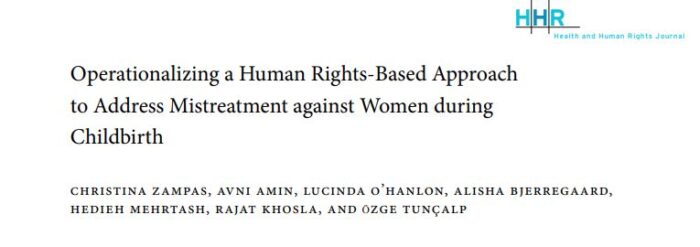
A growing body of evidence reveals that the mistreatment of pregnant women during facility-based childbirth is occurring across the globe. As human rights bodies have increasingly recognized, numerous human rights are implicated in the context of mistreatment of women in childbirth, including the rights to be free from torture and other ill-treatment, privacy, health, non-discrimination, and equality. This paper builds on a previous paper published in this journal by Rajat Khosla, Christina Zampas, and others, and the new body of evidence describing the types of mistreatment that occur during childbirth, to unpack the drivers of the mistreatment of women during childbirth and how they are understood and addressed within human rights. Tracing recent developments, it examines how the United Nations Special Rapporteur on violence against women and the Parliamentary Assembly of the Council of Europe have addressed this issue. Understanding the drivers and human rights dimensions of the mistreatment of women during childbirth can contribute to accelerating progress toward universal health coverage, including access to reproductive health services, as mistreatment is a key barrier to women’s access to such services. The article concludes by offering guidance to states on a human rights-based approach to addressing mistreatment against women during facility-based childbirth.
